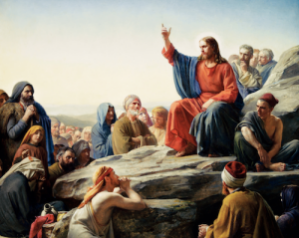Robert King (e-watchman)
Who are the 24 elders in Revelation? (The opinion of Robert King)
Who are the twenty four Elders in the book of Revelation? According to the Watchtower the 24 elders represent the 144,000 as a group. Do you agree with their interpretation?
Yes, I agree with their interpretation.
The first mention of the 24 elders is in the fourth chapter of Revelation. It reveals that 24 elders sit upon thrones and wear golden crowns upon their heads – obviously symbolizing that they are kings. Also, their thrones are situated around Jehovah’s throne, indicating that their kingship is closely tied with God’s kingship.
The angels are never spoken of as ruling kings, nor is there any reference in all the Bible to angels sitting upon thrones. But the apostle Paul told his fellow anointed brothers in the Corinthian congregation that if they went on enduring they would rule together as kings, and not just over the earth; Paul revealed that those who are called to heaven in union with Christ will judge angels — meaning, they will have authority over them.
All things considered, the 24 elders sitting upon thrones next to God can only be those who are ruling as kings in company with Christ.
Furthermore, King David divided the Aaronic priests into 24 divisions. (1 Chronicles 24) The 24 elders apparently signify that they are also serving as priests. That is in harmony with what is stated in the 20th chapter of Revelation regarding those who experience the first resurrection, where it states: “They will be priests of God and of the Christ, and they will rule as kings with him for the 1,000 years.”
In the Israelite system the priests were foremost before God. They took the lead in the worship of Jehovah God, which is exactly what the 24 elders are depicted doing. There are several instances where the 24 elders bow before God and the Lamb. Here is one instance: “The twenty-four elders fall down before the One seated upon the throne and worship the One that lives forever and ever, and they cast their crowns before the throne, saying: ‘You are worthy, Jehovah, even our God, to receive the glory and the honor and the power, because you created all things, and because of your will they existed and were created.’”
One of the primary objections raised by some against the 24 elders representing the 144,000 is that the elders appear in the vision of Revelation before Jesus is handed the scroll to commence the revelation, which would also include the first resurrection. So, how can the 24 elders be in heaven before the resurrection?
Well, for one thing Paul wrote in his letter to the Ephesians that anointed Christians are seated in heavenly places even while they are in the flesh, before they rule as kings in the new system. At Ephesian 2:6-7 Paul wrote: “Moreover, he raised us up together and seated us together in the heavenly places in union with Christ Jesus, so that in the coming systems of things he might demonstrate the surpassing riches of his undeserved kindness in his graciousness toward us in union with Christ Jesus.”
This harmonizes with the opening vision of Revelation that reveals seven golden lamp stands in heaven —symbolizing the seven congregations on earth.
Furthermore, Paul opened his letter to the Ephesian by stating: “He chose us to be in union with him before the founding of the world, that we should be holy and unblemished before him in love. For he foreordained us to be adopted as his own sons through Jesus Christ, according to his good pleasure and will…”
Paul is not here stating that the individuals who would be called and eventually chosen to rule with Christ were “foreordained.” What was foreordained is the adoption of a set number of sons. So, since God willed for 144,000 to be in union with Christ from the founding of the world, and God considered those in union with Christ to be seated in heavenly places, with access to God, and God’s purpose for a Kingdom is certain of success, it is as though the 24 thrones are already in place.
You might be interested by this alternative explanation about the 24 elders on this page: Os "24 anciãos" e "144'000" são as mesmas pessoas?

